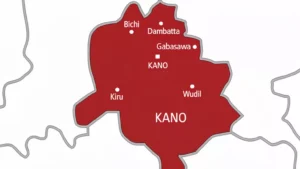Grupo Moreno, Terous, USI S. Joao, Alvean and Arapora Bionergia, all unregistered sugar products suspected to have been smuggled from Brazil, have been spotted in the southwestern and northeastern regions of Nigeria.
The Federal Competition and Consumer Protection Commission (FCCPC), raised the alarm on Wednesday. The federal regulator stated that the unregistered products were smuggled into Nigeria. It explained that they were mostly smuggled into the country through Cameroon and Benin Republic.
It also stated that the flagged products lacked normal labelling, which included production and expiry dates, batch numbers and registration numbers from the National Agency for Food and Drug Administration and Control (NAFDAC).
The commission said the smuggled products failed to meet the Vitamin A fortification requirements for the country’s consumers. This requirement is a step towards preventing blindness and vulnerability to infections in Nigerian consumers.
https://x.com/fccpcnigeria/status/1859193960876405162?t=hmIPSpg26ZimypXj0pbIbQ&s=19
“The Federal Competition and Consumer Protection Commission (FCCPC) has uncovered the availability of substandard and unregistered sugar products in Nigerian markets, particularly smuggled brands from Brazil, including Grupo Moreno, Terous, USI S. Joao, Alvean and Arapora Bionergia,” the FCCPC’s alert reads in part.
“The products, which failed to meet mandatory Vitamin A fortification requirements, pose serious health risks to consumers, undermine the integrity of the local sugar industry, and contribute to price manipulation that harms the market.
“The investigations revealed that many of the identified sugar products lacked normal labelling, including production and expiry dates, batch numbers, and the mandatory National Agency for Food and Drug Administration and Control (NAFDAC) registration.
“Even more concerning, most of the products were not fortified with Vitamin A, a critical nutrient essential for good vision, immune health, and overall well-being. The absence of this fortification exposes Nigerian consumers to serious health risks, including blindness and increased susceptibility to infections, particularly among vulnerable groups such as children and pregnant women.
Release: FCCPC Alerts of Low-Quality Sugar in Nigerian Markets
Pursuant to Sections 17(j), (l) (s), 116 (2), 124, 125, 138 and 155 of the Federal Competition and Consumer Protection Act (FCCPA) 2018
Wednesday, November 20, 2024: The Federal Competition and Consumer Protection… pic.twitter.com/P3zHGNXJxG
— FCCPC Nigeria (@fccpcnigeria) November 20, 2024
“The FCCPC is also deeply concerned about the economic impact of these products. The influx of smuggled sugar undermines fair competition, placing undue pressure on compliant local producers who adhere to regulatory standards. Importers of these substandard products engage in price manipulation to the detriment of genuine producers and consumers, while pretending that the products are genuine.
“This jeopardises the sustainability of the Nigerian sugar industry and also erodes consumer trust in the market. Smuggling, facilitated through porous borders, particularly from neighbouring countries such as Cameroun and Benin Republic, further complicates enforcement efforts and hampers traceability.”
Some retailers sell unbranded sugar in transparent nylons, packed in smaller quantities, to Nigerian consumers.
The risk of consuming unregistered products becomes more pronounced when consumers do not know the brand of sugar they buy.









